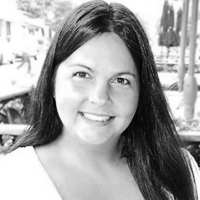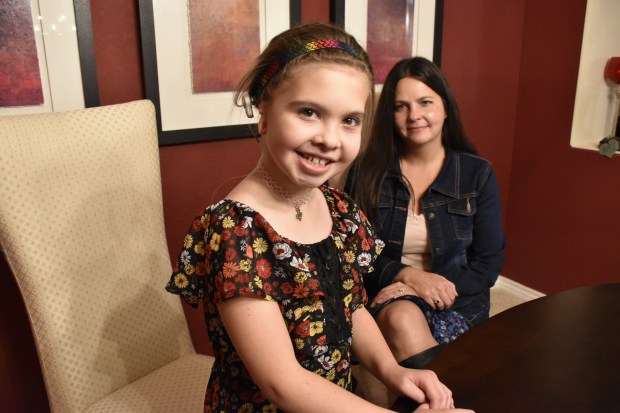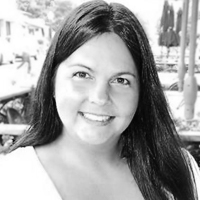Ally’s Act: An Interview with Melissa Tumblin
AudiologyOnline: What are the basic provisions included in Ally’s Act?

Melissa Tumblin: Ally’s Act (H.R. 5485) is a bipartisan bill that would ensure private insurance companies provide coverage for osseointegrated hearing devices (OIDs), including bone anchored hearing systems and cochlear implants. Hearing device coverage varies from state to state and only half currently have legislation in place to cover hearing aids. Even where this coverage in place, OIDs are not always included in these coverage plans. Ally’s Act is a national level bill, not a state level bill, meaning it would help children and adults requiring these hearing devices receive coverage in every state, not just some.
AudiologyOnline: What would be covered under Ally’s Act?
Melissa Tumblin: Ally’s Act would help individuals obtain hearing device coverage through private insurers listed under the Affordable Health Care Act – and there are a lot of them. Coverage would include the following:
- A bone conduction hearing aid or cochlear implant
- An upgrade replacement of these hearing devices every five years
- Accessories, including soft band headband, hard headband and adhesives
- Repairs of these devices
- One (1) comprehensive hearing assessment per year
- One (1) preoperative assessment per year
- Implantation surgery
- Postoperative medical appointments for purposes of ensuring appropriate recovery from surgery
- Postoperative audiological appointments for activation, fitting, and programming
- Aural rehabilitation services related to the use of the device
AudiologyOnline: What prompted Ally to write to Congressman Joe Neguse?
Melissa Tumblin: Ally’s third grade class last year received a homework assignment giving them options for getting involved with the community and giving back. There was an option for writing to your local representative about a cause you care about. Ally decided to write to Congressman Joe Neguse (D-CO) in May for Better Hearing and Speech Month and asked him to help her advocate to hear better, and despite his office receiving more than 58,000 in 2019, he responded to Ally’s on September 25, 2019.
AudiologyOnline: What prompted Rep. Neguse to champion this bill?
Melissa Tumblin: When Rep. Neguse learned that private insurance providers often deny coverage for OIDs, especially for children from birth to age five -- critical years of development -- he was outraged. He also discovered they often continue to be denied coverage throughout their lives. OIDs are frequently the only options for certain individuals due to their specific type of hearing loss, or in the case of Ally and many like her, they can’t wear traditional hearing aids because they were born without an ear and/or ear canal.
AudiologyOnline: Are any other congressional representatives supporting Ally’s Act?
Melissa Tumblin: Rep. Neguse’s office also worked very closely with Congressmen David McKinley (R-WV) and Mike Thompson (D-CA), co-chairs to the Congressional Hearing Health Caucus. Ally’s Act is very near and dear to Congressman McKinley’s heart as he is the only cochlear implant user in Congress. He also has a very close family member who wears the same bone anchored hearing system as Ally.
AudiologyOnline: Who will benefit the most if this law passes?
Melissa Tumblin: Thousands of children and adults who require OIDs, including those with conductive, severe to profound sensorineural, or certain mixed hearing losses. Also those who’ve lost hearing due to a cholesteatoma or acoustic neuroma. Additionally, families would benefit from these devices being covered by insurance and not having to spend tens of thousands of dollars out of pocket. Schools would also benefit because coverage of hearing devices and their accessories would help reduce classroom expenses.[1]
AudiologyOnline: Why do insurance providers typically deny these claims?
Melissa Tumblin: I believe many insurance providers lack the appropriate information as to why OIDs are medical necessities for certain candidates who cannot benefit from air conduction hearing aids. They might also consider these devices experimental technology and not “real” hearing aids, even though they are FDA-approved medical devices. Additionally, insurance companies may deny coverage if the patient “only” has unilateral hearing loss even though having one good ear is not always enough, as many studies confirm. Finally, if an insurance provider doesn’t offer hearing aid coverage in a given state and categorizes OIDs as hearing aids, they might reject OID claims automatically.
AudiologyOnline: What are the chances of this bill passing and becoming law?
Melissa Tumblin: They are actually very good. First, this bill has bipartisan support, and is backed by many medical professionals, including ENT/otolaryngologists and audiologists. Between Rep. Neguse’s understanding the Medicare system and cost-sharing plans and Rep. McKinley’s experience with hearing health care insurance plans for the Medicaid and Tricare systems, we have excellent representatives on our team. Additionally, Ally’s Act is endorsed by several hearing health organizations, including Ear Community, the HearStrong Foundation, and the American Academy of Audiology.
AudiologyOnline: Is there a timetable for the bill to be submitted, voted on, etc.?
Melissa Tumblin: H.R. 5485 was introduced on December 18, 2019. Currently, Ally’s Act has been assigned to the House Committee for Energy and Commerce. It must move out of this House committee in order to go to the Senate. If this bill passes and becomes law, Ally’s Act would apply as early as January 1, 2021.
AudiologyOnline: What can the Deaf and hard of hearing communities and their supporters do to help?
Melissa Tumblin: In order to advance, we have a three to four-month window of time during which community members must actively write to and call the offices of their local congressional representatives, ask them to co-sponsor Ally’s Act, and explain why this bill is so important to them. This is the opportunity for the community to voice their concern for lack of hearing device insurance coverage and the need for bone anchored hearing devices and cochlear implants to be covered.
AudiologyOnline: What issues do kids like Ally face if they can’t get their osseointegrated devices?
Melissa Tumblin: They are at risk for speech delays during the critical years of development (birth to age five). They might struggle in the school classroom and potentially be held back or have to repeat a grade. Losing the ability to localize where sound is coming from poses safety concerns (e.g., recognizing the direction from where traffic is coming). People with hearing loss often experience fatigue from straining to process information communicated during conversations or in class.

AudiologyOnline: Do you have any advice for others who want to advocate on behalf of the hard of hearing?
Melissa Tumblin: There are many options. If you are a caregiver to a child with hearing loss, try helping them be more of a visual learner and more aware of their environment. Embrace additional ways to communicate and find out what works for both of you, such as learning baby sign language or ASL. Encourage them to sing, dance, and participate in sports as hearing loss should never define anyone or hold them back. Also, give them the opportunity to try assistive technology like hearing devices, FM systems, and sound field systems, and learn how they could help your child benefit in the classroom. If you believe your child needs additional help, inquire about qualifying for an Individualized Education Plan (IEP) or 504 Plan.
AudiologyOnline: Any final thoughts on the importance of advocacy?
Melissa Tumblin: When we support our children and encourage them to be their best, this helps them learn to advocate for themselves as they become adults. There are 48 million people in the United States who have hearing loss. The majority of these individuals live healthy and happy lives. Being given the opportunity to hear better improves upon that happiness and their hearing health.
Learn more about how medical professionals and community members can help support Ally's Act: https://earcommunity.org/about/allys-act-h-r-5485/
[1] Source: https://www.ncbi.nlm.nih.gov/pmc/articles/PMC3744006/.

